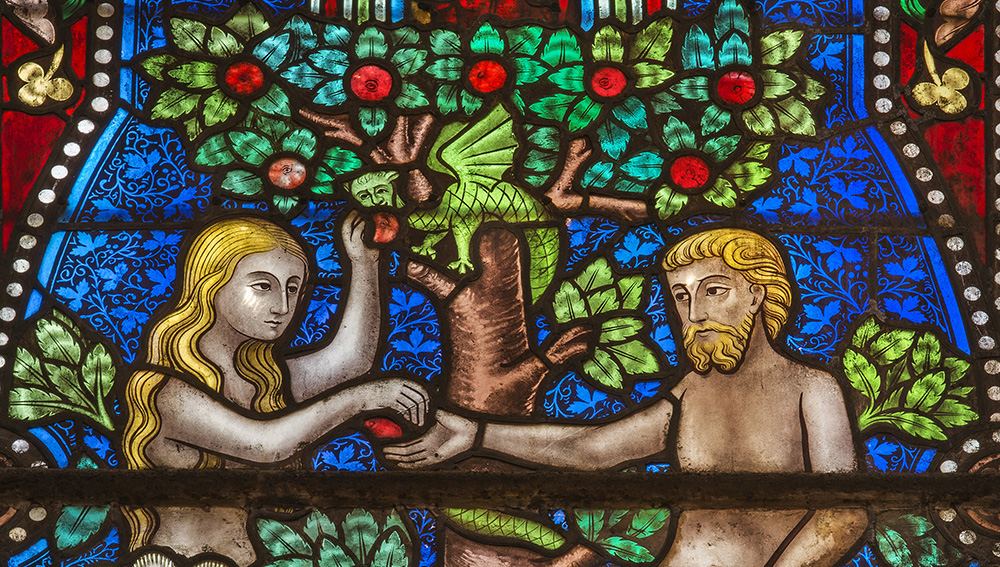The human being is described in The Catechism of the Catholic Church as created in God’s image – as both male and female – and is one person with both a body and a soul. These are the defining characteristics of who we are and are worthy of our exploration.
Image of God
In the book of Genesis we learn that humanity is set apart from the rest of creation – created in the image of God (see Gen 1:27). This image is given uniquely to man, who is willed by God for his own sake. Animals, on the other hand, are made not for their own sake but for service to man.
God’s image is reflected in each human being and perfected in the communion persons. Just as God is a unity in a diversity of divine Persons, so too does man reach his fulfillment and dignity by entering into communion with others. This purpose was darkened through sin. But, by giving ourselves away for the sake of another in Christ, we find ourselves in the only truly life-giving communion.
Body and Soul
This image of God is also found in man by our composite nature of body and soul. So often today the body is misunderstood as a mode of expression that is easily manipulatable for the expression of one’s spiritual, true, inner self. The body is seen purely as an extension of the self. This is known as dualism, which focuses more on the separation of body and soul rather than their integration. The Christian tradition rejects that view. Rather, man is a singular nature of which the body and the soul are intimately united. Not just our souls, but our bodies manifest being made in God’s image.
The soul gives man two especially unique qualities that distinguishes him from the animals. These are attributes of God Himself and found in no other creatures aside from humanity: intellect and will. Man’s intellect gives him the ability to reason, to judge, and to know the truth. Most importantly, man’s intellect gives him the ability come to know and contemplate God.
The human will is the means by which we have true freedom. Through it we can choose the good and reject evil, and are able to offer our lives in the service of others. It is through the will that man is able to choose virtue over vice, to choose God and his salvation. The human will is the seat of action: the animals act but without the freedom of human beings. Man, through a certain intentionality, is able to give expression to his desires and to seek out the truth.
Male and Female
So often, when discussing our human nature, we look to body and soul, intellect and will as the summation of what it means to be human. Thanks to the magisterium of Pope St. John Paul II, another element was rediscovered and re-emphasized: that man is created in God’s image as male and female.
The Catechism emphasizes the equality between man and woman, created to be a unity “in one flesh.” Thus marriage is instituted from the beginning by which the union of man and woman makes visible the God in whose image man is made. Sexual differentiation is willed by God, and both man and woman make present something unique about Him. In a union through the gift of self in marriage, man and wife bring together their unique qualities to complement each other, and making present a more total vision of the human being in God’s image.
This teaching that man and woman are essential to human nature also reveals a final quality of humanity that is difficult for modern man to comprehend. So often we do not see ourselves as a corporate body, part of something bigger than ourselves. Rather, we see ourselves as atomized and separated from other human beings, focused more readily on “me.” We may speak generically of “the human race,” but practically and experientially – especially due to individualism – we have a hard time understanding the social nature of humanity. By virtue of the fact that God created man as a communion of persons from the beginning, it demonstrates that the individual is not perfected in isolation from others, but that it is built into our nature to seek out communion with others so as to come to our own perfection. This is, again, due to the fact that man is made in God’s image – who in himself is a communion of persons, Father, Son, and Holy Spirit. As each person of the Trinity is only themselves in communion with the other persons, so, too, in man is an individual most fully themselves when in communion with others.
Father Harrison Ayre is a priest of the Diocese of Victoria, British Columbia. Follow him on Twitter at @FrHarrison. Read more from his Theological Anthropology 101 series here.

